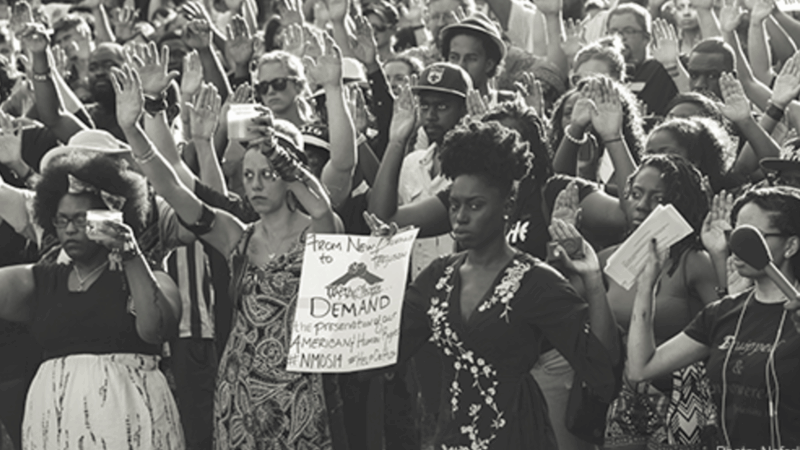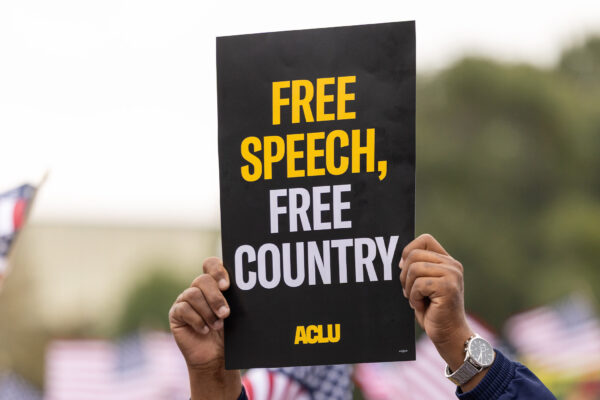Free Speech
The framers of the U.S. Constitution believed that the freedom of inquiry and liberty of expression were the hallmarks of a democratic society. The First Amendment of the Bill of Rights provides protections in a number of areas including free speech.

What you need to know
1920
Since the 1920s, the ACLU has been involved in virtually all of the landmark speech cases to reach the U.S. Supreme Court.
1997
In a landmark 1997 decision, the U.S. Supreme Court agreed with the ACLU’s argument that the Internet itself is a free-speech zone.
“[W]e have little trouble in concluding that the people who framed and adopted Article I, section 8, as part of the original Oregon Constitution intended to prohibit broadly any laws directed at restraining verbal or nonverbal expression of ideas of any kind.”
-- State v. Ciancanelli
(Oregon Supreme Court, 2005)
The framers of the U.S. Constitution believed that the freedom of inquiry and liberty of expression were the hallmarks of a democratic society. The First Amendment of the Bill of Rights provides protections in a number of areas including free speech.
The framers of the Oregon free speech equivalent, often referred to as our free expression provision, were even more protective of our rights.
Historically, at times of national stress, real or imagined free speech rights come under enormous pressure. During the “Red Scare” of the 1920s, thousand were deported for their political views. During the McCarthy period, the infamous blacklist ruined lives and careers. Today, protestors of U.S. government policies are attacked and creators, producers and distributors of popular culture are often blamed for the nation’s deep social problems.
Calls for censorship threaten to erode free speech.
The First Amendment and Oregon’s free expression provision protect popular speech and the most offensive and controversial speech from government suppression. The best way to counter obnoxious speech is with more speech. Persuasion, not coercion, is the solution.
The Latest

ACLU of Oregon Wins Emergency Order to Stop Department of Homeland Security Officers from Retaliating Against Portland ICE Building Protestors
Stay Informed
Sign up to be the first to hear about how to take action.
By completing this form, I agree to receive occasional emails per the terms of the ACLU’s privacy statement.
By completing this form, I agree to receive occasional emails per the terms of the ACLU’s privacy statement.



